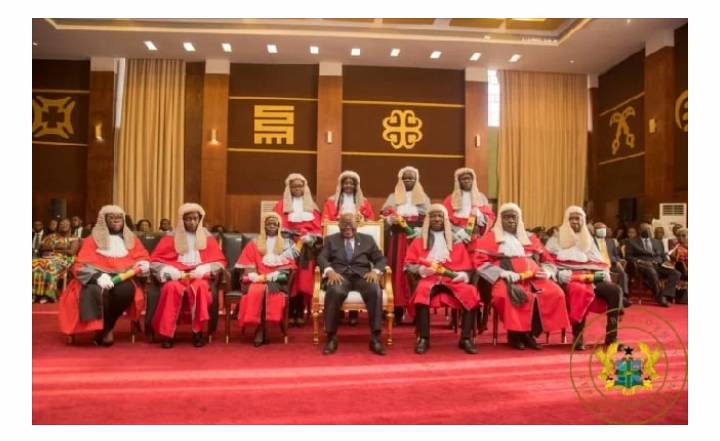A recent report from the Mo Ibrahim Index on African Governance reveals a sharp decline in judicial independence in Ghana over the past seven years, dropping from a high of 100% to just 50% in 2024. This decrease signals growing concerns about political influence over Ghana's judiciary, a crucial component of democratic governance.
Judicial independence, defined by the Mo Ibrahim Foundation as the judiciary's ability to function without external pressure from other government branches, is widely regarded as essential to upholding the rule of law. Ghana’s once robust judicial autonomy has been gradually eroding since 2018. Between 2014 and 2017, Ghana’s judiciary scored a perfect 100% on the index, highlighting a period when judges were perceived to interpret and enforce laws without political interference. However, in 2018, this score plummeted to 50% and has remained stagnant, raising questions about the judiciary's ability to operate impartially.
Vice President Dr. Mahamudu Bawumia recently highlighted Ghana’s status as the seventh-best-governed country in Africa at a youth event, reflecting pride in the nation's overall governance rankings. However, the erosion of judicial independence outlined in the Mo Ibrahim Index points to a more complex picture. Critics argue that recent political appointments within the judiciary, as well as incidents involving the detainment of protesters, suggest potential biases and underscore the judiciary's vulnerability to political pressures. Civil society groups and analysts alike are voicing concerns, warning that a judiciary lacking in autonomy could undermine public trust in Ghana’s legal system and democratic principles.
Analysts emphasize that judicial independence serves as a cornerstone of democracy, ensuring that laws are applied fairly and that citizens are protected from potential governmental overreach. The current situation, some argue, calls for urgent reforms aimed at bolstering judicial safeguards and reducing the influence of external actors. Legal experts and advocacy groups propose mechanisms such as greater transparency in judicial appointments, stricter rules against political interference, and the establishment of an independent body to oversee judicial practices.
The trend noted in the Mo Ibrahim Index suggests a need for both government action and public dialogue. Restoring judicial independence may be challenging, but it is viewed as essential for sustaining Ghana's democratic integrity and fostering long-term public confidence in the nation’s governance structures. Civil society's involvement and international oversight may also play pivotal roles in ensuring the judiciary operates independently and justly.
Source:Classfmonline



No comments yet
Be the first to share your thoughts!